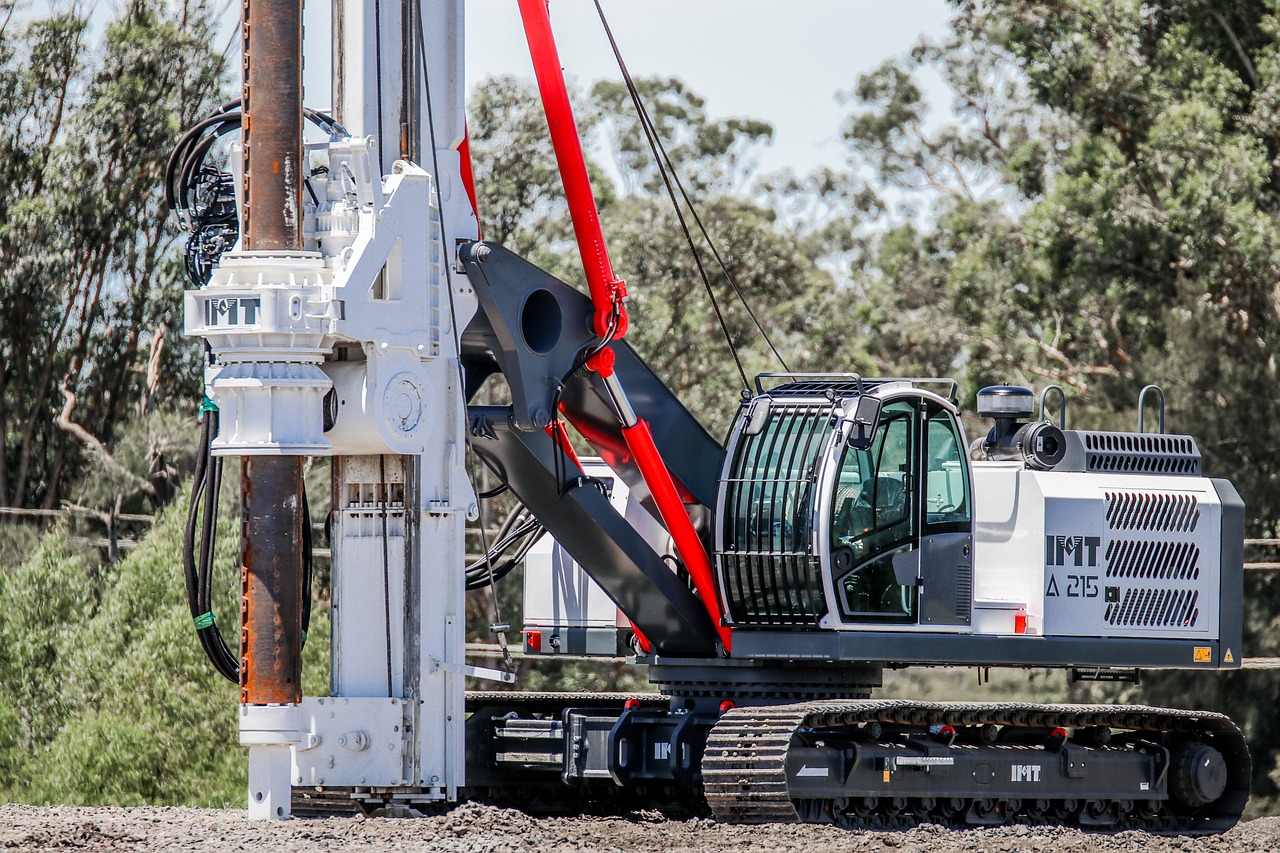Foundation drilling is a critical aspect of construction, providing the necessary support for buildings, bridges, and other structures. The success of any foundation drilling project hinges on the careful selection of appropriate tools suited to the specific soil conditions and project requirements. In this article, we will explore the various types of foundation drilling tools available, as well as provide a comprehensive guide for their selection.
Types of Foundation Drilling Tools:
These tools come in various types, each designed to tackle specific soil conditions and project requirements. Augers, with their rotating helical screw blades, excel in excavating soil efficiently. Core barrels are indispensable for drilling through hard rock formations. Drilling buckets are specialized for large-diameter shafts in cohesive soils, while rock augers handle abrasive rock with ease. Casing twisters facilitate casing installation in challenging environments. Therefore, understanding the capabilities of these tools is crucial for selecting the right one for the job, and ensuring successful foundation drilling operations. Read more below:
Augers:
Augers are among the most common tools in foundation drilling. They consist of a rotating helical screw blade, which excavates soil as it turns. Augers are versatile and can be used in a wide range of soil conditions, including cohesive and non-cohesive soils. They come in various sizes and configurations, making them suitable for different project requirements.
Core Barrels:
Core barrels are essential for drilling through hard rock formations encountered in foundation construction. They feature a cylindrical barrel with cutting teeth at the bottom, allowing for efficient rock removal. Core barrels typically work in conjunction with drilling rigs equipped with high torque and thrust capabilities.
Drilling Buckets:
Drilling buckets are specialized tools designed for excavating large-diameter shafts in cohesive soils. They feature a hollow cylindrical design with cutting teeth or blades at the bottom, enabling efficient excavation and material retention. Drilling buckets are commonly used in applications such as bridge piers and deep foundation piles.
Rock Augers:
Rock augers are specifically designed for drilling in hard rock formations. They feature heavy-duty construction and carbide or diamond-tipped cutting teeth to withstand the abrasive nature of rock. Rock augers are often used in conjunction with rotary drilling rigs equipped with high-pressure air or water jets to assist in rock fragmentation.
Casing Twisters:
Casing twisters are specialized tools used for installing casing during foundation drilling operations. They feature a spiral-shaped design that twists the casing into the ground while simultaneously drilling. Casing twisters are commonly used in situations where borehole stability is a concern or when drilling through loose or collapsing soils.
Selection Guide for Foundation Drilling Tools:
Selecting the appropriate foundation drilling tools is critical for the success of construction projects. A comprehensive selection guide ensures that the chosen tools match the soil conditions, project requirements, and environmental constraints. Factors such as soil characteristics, project scope, geological considerations, and budget constraints play pivotal roles in decision-making. Environmental concerns and compliance with regulations further influence tool selection. By following a systematic approach outlined in the selection guide, construction professionals can make informed decisions, maximizing efficiency and minimizing risks in foundation drilling operations.
Soil Conditions:
The type and condition of the soil play a crucial role in selecting the appropriate drilling tool. Cohesive soils such as clay may require tools with efficient cutting and soil removal capabilities, such as drilling buckets or augers with aggressive flighting. Non-cohesive soils like sand or gravel may require tools with specialized features to prevent material loss and maintain borehole stability.
Project Requirements:
The size, scope, and nature of the project will dictate the choice of drilling tools. Large-diameter shafts or deep foundation piles may require heavy-duty tools like drilling buckets or rock augers. Smaller-scale projects or those with limited access may benefit from compact and versatile tools like augers or core barrels.
Geological Considerations:
Geological surveys and site investigations are essential for understanding the subsurface conditions. Rock formations, presence of groundwater, and other geological factors influence the selection of drilling tools and techniques. Tools with appropriate cutting mechanisms and wear-resistant materials should be chosen to withstand the specific geological conditions encountered.
Environmental Constraints:
Environmental considerations, such as noise restrictions, vibration limits, and ecological sensitivities, may also impact the selection of foundation drilling tools. Quieter drilling methods or equipment with reduced environmental impact are ideal in urban areas or sensitive ecosystems. Adherence to local regulations and permit requirements is essential to ensure compliance and mitigate potential environmental risks associated with drilling operations.
Budget and Timeline:
The project budget and timeline are critical factors in selecting foundation drilling tools. Cost-effective solutions that meet project deadlines without compromising quality are paramount. While high-performance drilling tools may offer superior efficiency and productivity, there must be a balance against budgetary constraints and project timelines. Cost-benefit analysis and risk assessment should guide the selection process to achieve the best possible outcomes within the allocated resources.
Conclusion:
Foundation drilling tools are essential for the successful execution of construction projects, providing the necessary support and stability for structures. By understanding the different types of drilling tools available and following a comprehensive selection guide, construction professionals can make informed decisions to ensure the efficiency, safety, and success of foundation drilling operations. Investing in quality equipment, conducting thorough site assessments, and adhering to environmental regulations are essential steps toward achieving optimal outcomes in foundation construction.

